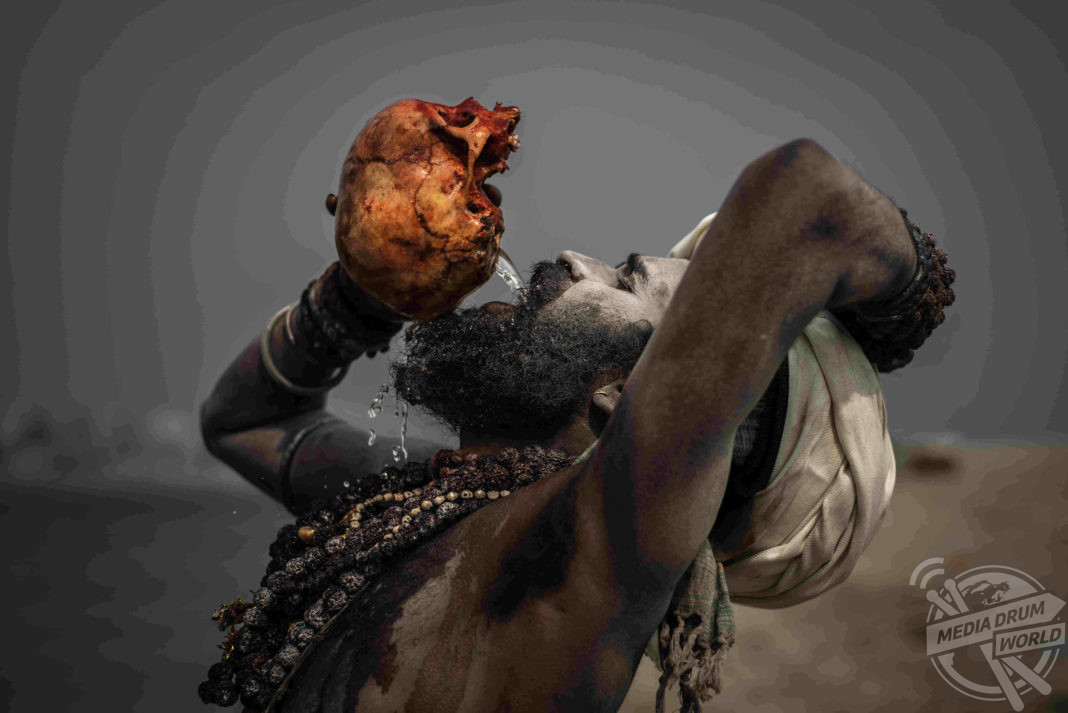
By Kate Harrold
MEET THE men who reside in cemeteries, use dead bodies as alters and consume human flesh.
One chilling image captured a man as he tipped his head back and raised his hands before drinking from the mouth of a real human skull.
In another picture we see a man sat down with a red human skull perched on top of his own whilst his face is covered in an eerie white dust.
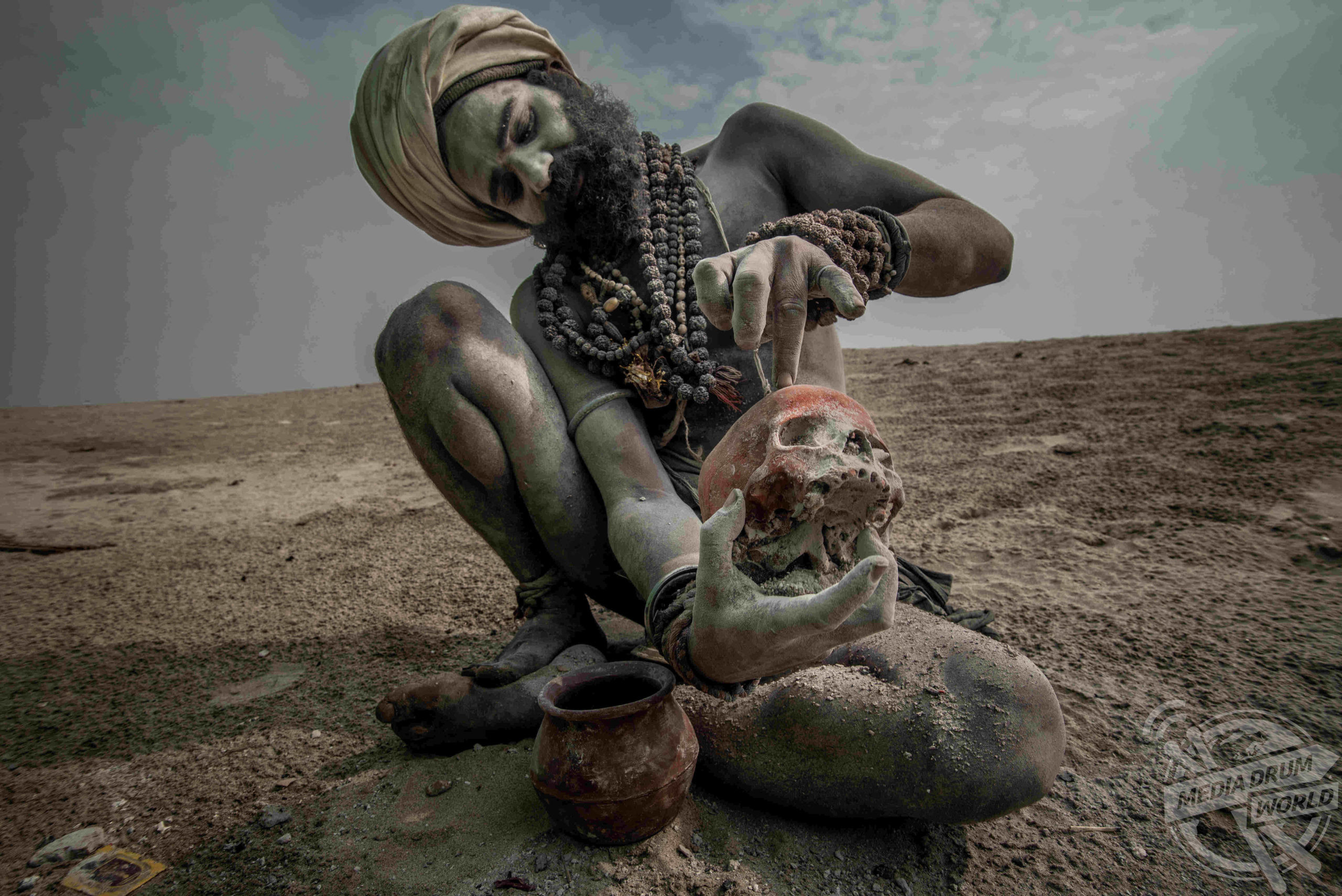
Photographer, Jan Skwara (38) from Pruszkow, Poland, was travelling through Varanasi, India, when he encountered this Aghori sect. The Aghori believe in asceticism – a lifestyle in which one denies themselves of sensual pleasures choosing instead to pursue spiritual goals.
Over the course of four days, Jan learnt a great deal about the Aghori people. Known for specialising in post-mortem rituals, the Aghori people also practice cannibalism. Whilst they worship the Hindu deity, Shiva, Aghori practices are seen as being contradictory to orthodox Hinduism.
“It is said that the Aghori exist in the space between life and death. They usually live close to crematory grounds and collect ‘human oil’ from corpses,” Jan said.
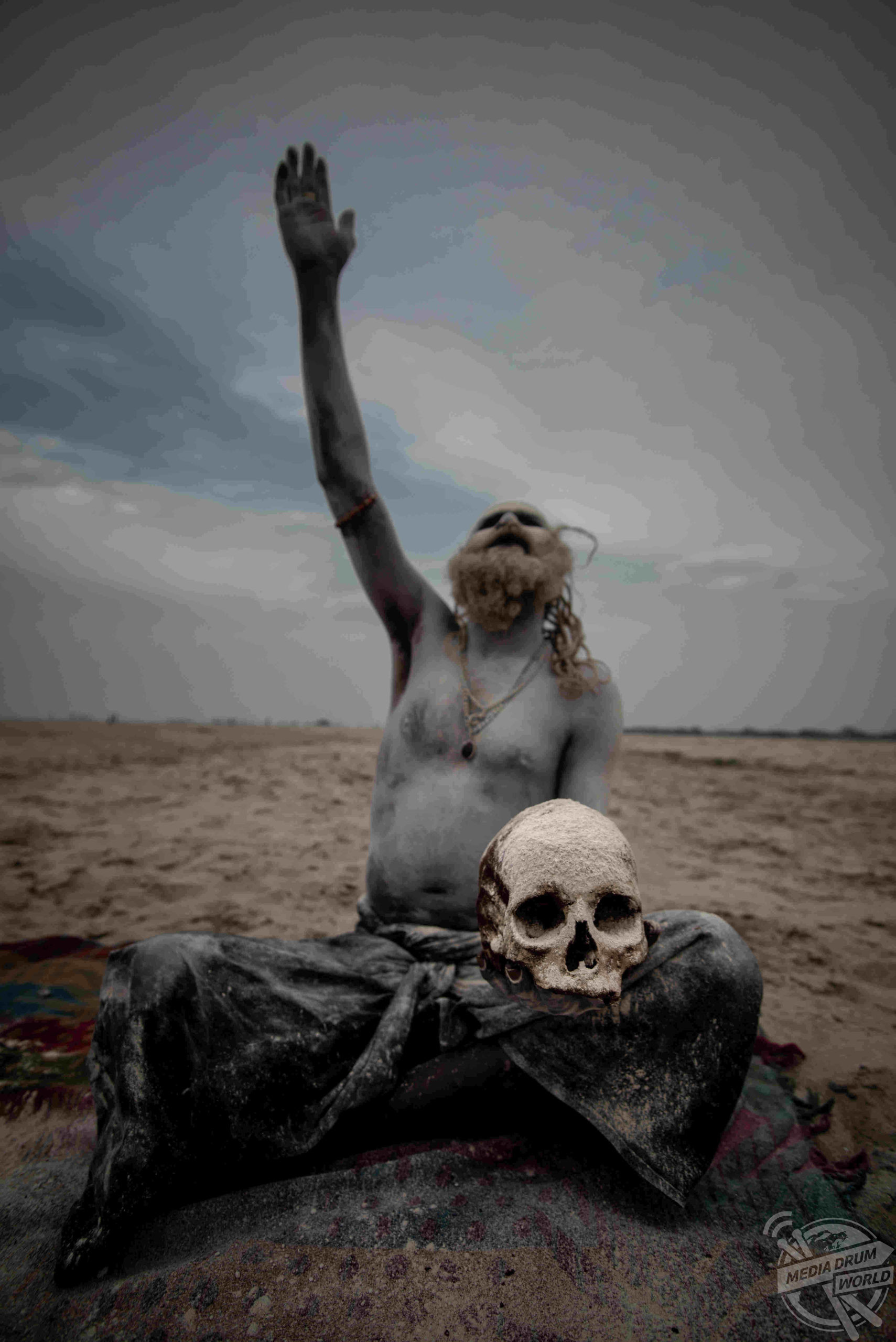
“Post-mortem practices are considered to be filthy in Hinduism but the Aghori disagree with this. They have their own belief system built upon providing offerings to their God and consuming polluted things like human flesh, excrement, or toxins.
“There are many Aghori who choose not to partake in these ancient traditions. Instead, they engage in positive social change – even a former president of India was Aghori. However, others live outside of society pushing asceticism to the extreme.
“The Aghori don’t like visitors – especially tourists – as their lives are concentrated on praying and meditation. I was able to visit them as I met a young man who was a former Aghori.”
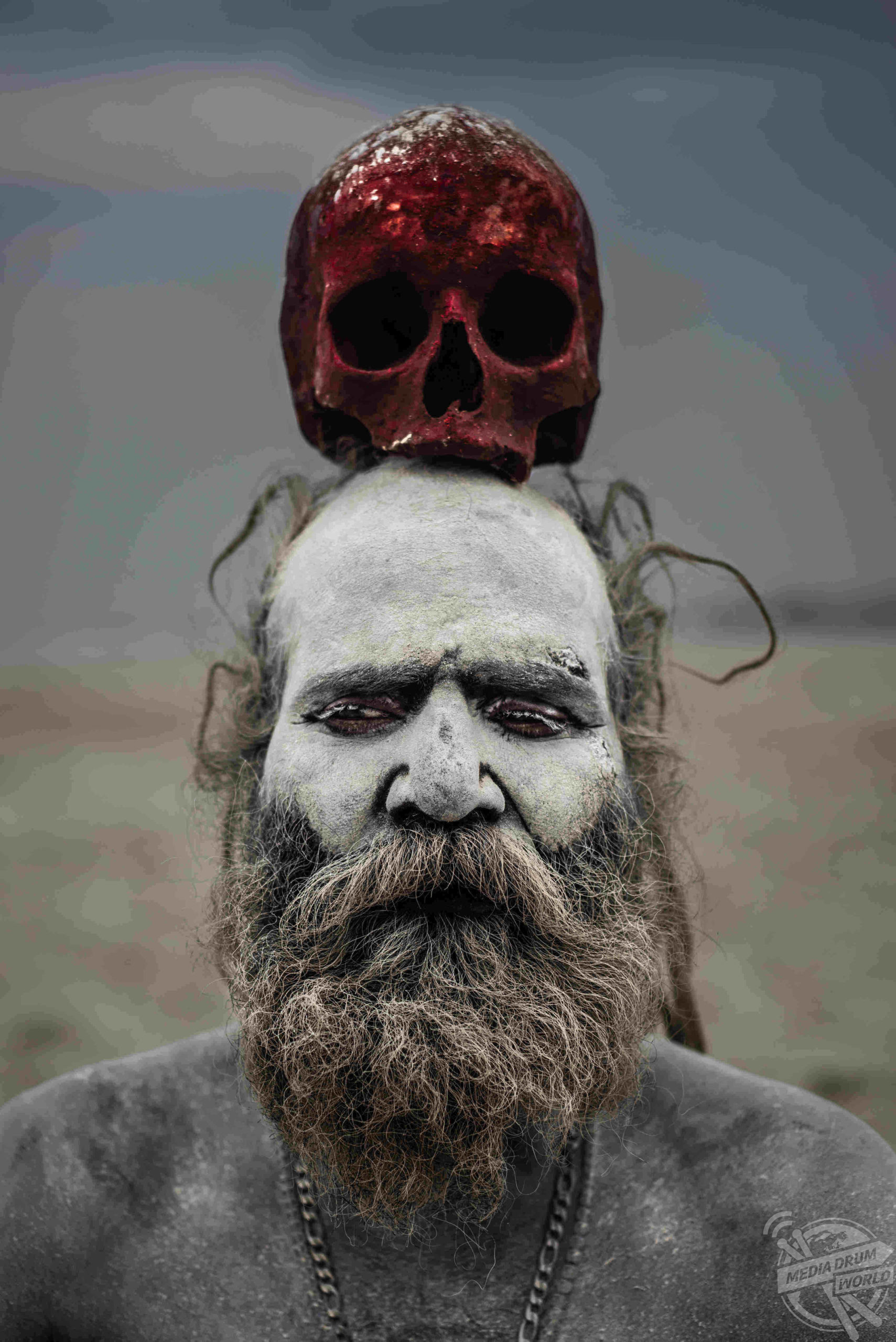
Aghori people only eat the flesh of deceased corpses and often also use bodies as alters to forge a connection to the sect’s deities. Asceticism promotes ridding yourself of passion, lust, and shame. For this reason, Aghori people wear very little clothing as a way to rid themselves of any shame. They are not interested in receiving any fame or notoriety.
“It was difficult to find anyone who could take me to see them. I must confess, it is scary to see all of the skulls,” Jan said,
“They behave strangely – sometimes screaming or running around. Aghori rituals may seem shocking to Western people but they are largely accepted.
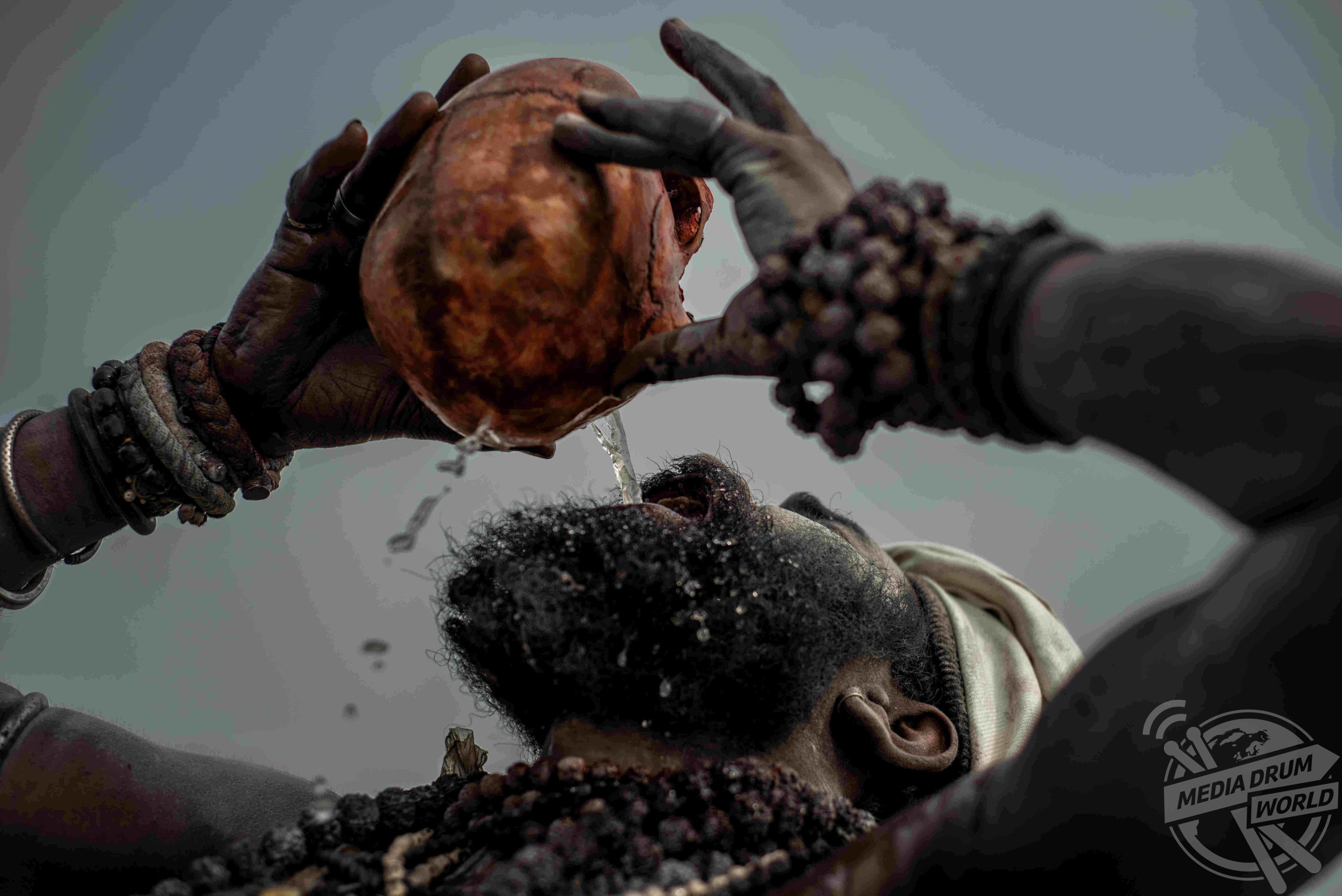
“It’s hard to describe the Aghori as their philosophy is so complex. There are no rules to how they should behave. Many follow their own individual paths.”
For more, see @janskwara_photo.





